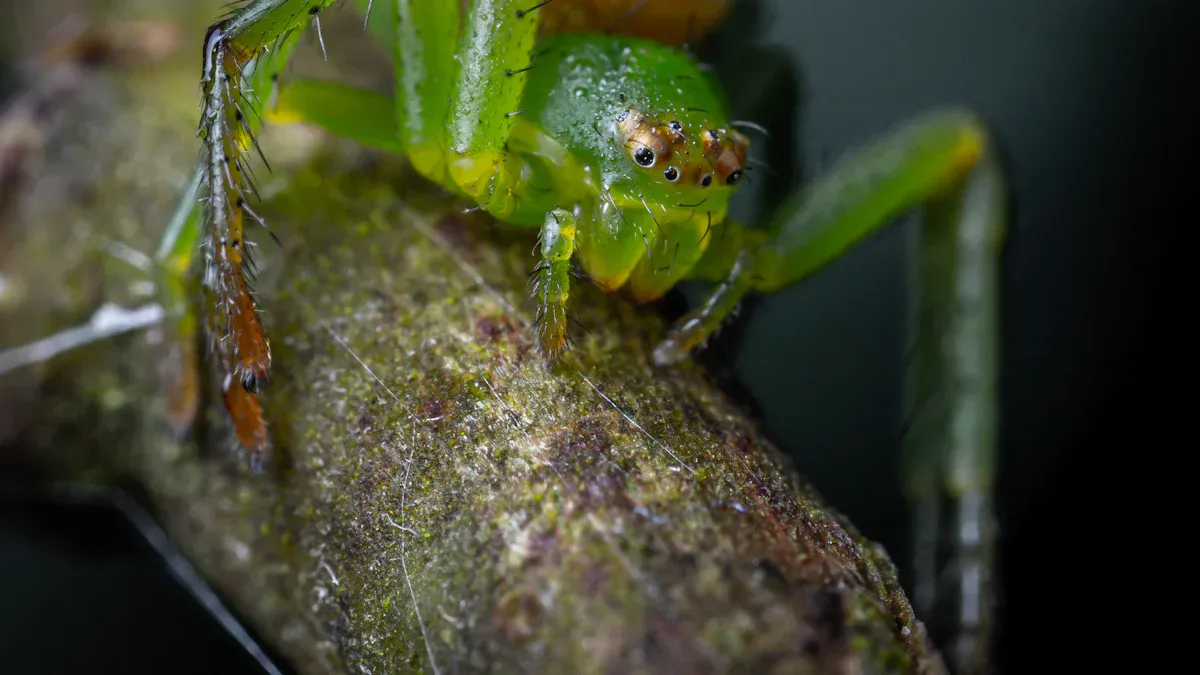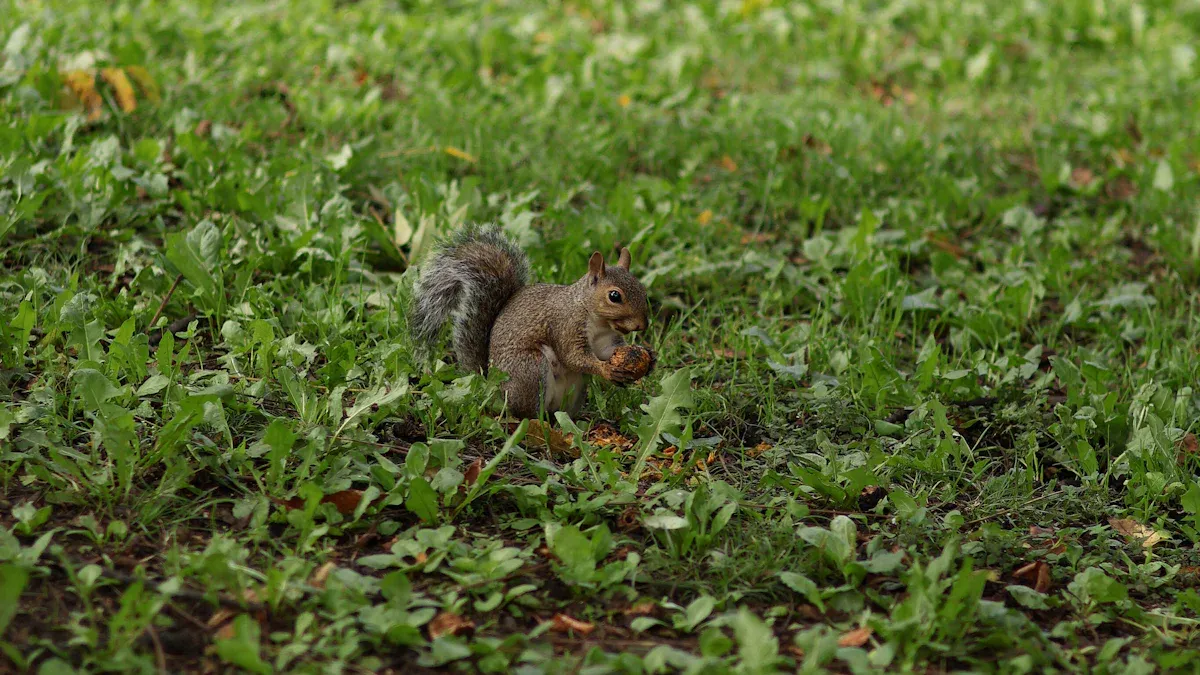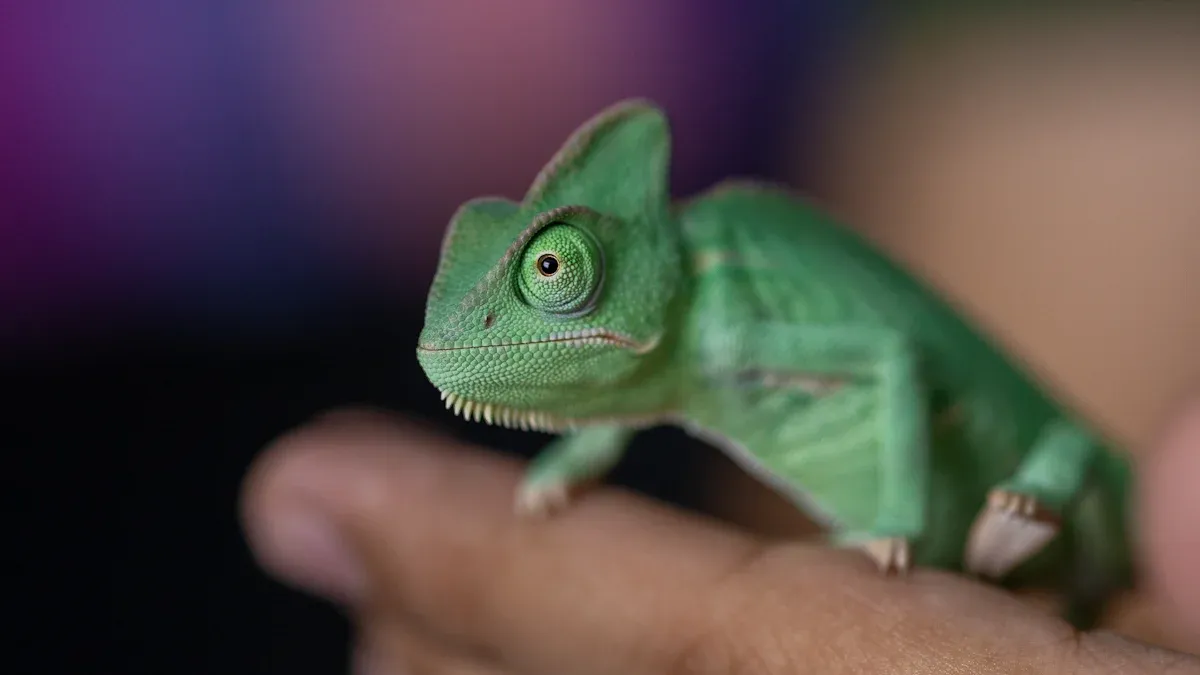Rethinking Cockroach Pest Control with Eco-Friendly Approaches

Cockroach Pest Control is essential as these pests can harm your health in numerous ways. Cockroaches spread allergens that exacerbate asthma and allergies, and they also carry harmful germs like Salmonella, which can contaminate food and surfaces. Many pest control methods rely on chemical sprays to eliminate them. However, the overuse of chemicals has led to the emergence of stronger cockroaches, such as German cockroaches. Research indicates that they now resist 42 insect sprays globally. This resistance is due to genetic changes and improved survival strategies against poisons. These developments reduce the effectiveness of sprays and highlight the need for safer solutions. To maintain health and protect the environment, we must explore eco-friendly pest control ideas. Business owners join here to learn more about sustainable practices in pest management.
Key Takeaways
Cockroaches spread germs and allergens that can make you sick. Stop them to keep your family safe.
Regular pesticides may stop working as cockroaches become resistant. Try eco-friendly ways for better control.
Clean your house and block cracks to keep cockroaches out. This removes their food and hiding places.
Use natural options like essential oils or diatomaceous earth. These are safer than chemical sprays.
If the problem is big, call pest control experts. They can solve it for a long time.
The Problem with Traditional Cockroach Control
Health Risks of Pesticides
Indoor pesticide exposure and its impact on human health.
Using pesticides inside can harm you and your family. These chemicals can irritate your eyes, nose, and throat. Long-term exposure might hurt your brain, kidneys, or liver. Some pesticides can mess with hormones or raise cancer risks. Headaches, dizziness, and nausea often happen after exposure. In bad cases, skin irritation can turn into rashes or blisters. Over time, constant exposure may cause serious health problems.
Risks of overusing chemical treatments in homes.
Using too many chemicals at home makes these dangers worse. Spraying often increases the chance of breathing or touching harmful residues. Kids and pets are at higher risk since they play on floors. Overuse also makes your home less safe and harder to manage pests.
Pesticide Resistance in Cockroaches
Evolutionary adaptation and genetic mutations in German cockroaches.
Cockroaches, like German ones, now resist many pesticides. Their genes change, helping them survive poisons that used to kill them. Some cockroaches make enzymes that destroy insecticides quickly. Others have mutations like kdr or Rdl, making them less affected by certain chemicals. These changes make it harder to get rid of cockroaches with sprays.
Study findings on resistance to common pesticides.
Studies show cockroaches are getting tougher against pesticides. Research in California found wild cockroaches survived sprays better than lab ones. For example, some baits only killed 50-80% of wild cockroaches. Another study showed repeated use of one chemical caused strong resistance in a few generations. These results show we need new ways to control cockroaches.
Environmental Impact
Harmful effects of excessive pesticide use on ecosystems.
Using too many pesticides hurts more than just cockroaches. Chemicals can leak into soil and water, harming plants and animals. They also kill helpful insects like bees and fish. Cutting back on pesticides helps protect nature while fighting pests.
The need for alternative, less toxic solutions.
To protect the environment, try safer pest control methods. Using natural baits or biological controls can work without harming nature. Other ideas, like reducing water runoff, also help. These eco-friendly methods keep pests away and protect the planet.
Understanding Cockroach Behavior and Biology
Cockroach Survival Mechanisms
How cockroaches survive without food or air.
Cockroaches are great at staying alive. When food is scarce, they slow down their bodies to save energy. This helps them live for weeks without eating. They also get water from food, air, or their surroundings. Their hard, waxy skin keeps them from losing water. These tricks make it hard to get rid of cockroaches.
Why cockroaches can handle radiation and tough conditions.
Cockroaches survive in extreme places where most animals can't. Their bodies fix damage from radiation better than others. This helps them live in nuclear areas. They also handle stress well, which explains why they've been around for millions of years.
Common Cockroach Hotspots
Where cockroaches like to hide.
Cockroaches love warm, wet places with food and water nearby. Kitchens and bathrooms are their favorite spots. They hide under sinks, behind stoves, and near dishwashers. Cluttered areas give them places to lay eggs and grow.
Why finding their hiding spots is important.
To stop cockroaches, you need to know where they hide. Look in these places:
Wall Voids: Behind sinks or stoves, especially in damp walls.
Electrical Boxes: Warm spots under kitchen appliances.
False Ceilings: Crowded areas can push them into ceilings above stoves.
Checking these areas early helps stop infestations from spreading.
Role in Disease Transmission
How cockroaches trigger asthma and allergies.
Cockroach droppings and skin can make asthma and allergies worse. Kids are especially affected by these allergens. If someone in your home has asthma, controlling cockroaches is very important.
Diseases cockroaches can spread.
Cockroaches carry germs that make people sick. They spread diseases like Salmonella and E. coli. The table below shows some illnesses linked to cockroaches:
Disease | What It Does |
|---|---|
Salmonellosis | Causes diarrhea, fever, and stomach pain; worse for weak immune systems. |
Staph Infections | Happens after eating bad food; cooking doesn’t kill the toxins. |
E. coli | Some types cause diarrhea; normally lives in people and animals’ intestines. |
Typhoid Fever | Caused by Salmonella Typhi; spreads through contaminated food and enters the bloodstream. |
Gastroenteritis | Stomach and intestine swelling, causing vomiting or diarrhea; spreads through bad food or drinks. |
Stopping cockroach infestations quickly can lower the chance of these diseases spreading at home.
Eco-Friendly Cockroach Pest Control Alternatives

Integrated Pest Management (IPM)
Using cleanliness, sealing gaps, and careful treatments.
Integrated pest management uses safer ways to control pests. It combines different methods to manage cockroaches effectively. Key steps include:
Keeping areas clean and removing food and water sources.
Finding where cockroaches are and watching their movements.
Deciding when action is really needed.
Using safe, targeted treatments only when necessary.
By cleaning, sealing entry points, and monitoring, you can reduce chemicals and create a healthier space.
Why using fewer pesticides and staying clean helps.
Using fewer pesticides with integrated pest management has many advantages:
Benefit Type | What It Does |
|---|---|
Fewer Pests | Lowers the number of cockroaches in your home. |
Less Pesticide | Reduces how often you need to use harmful sprays. |
Saves Money | Costs less while keeping your family safe. |
Better Health | Lowers exposure to things that trigger asthma or allergies. |
Works Well | Proven to help control pests in places like apartments. |
Keeping your home clean also stops cockroaches from coming back, making it a key part of pest control.
Natural and Non-Toxic Solutions
How essential oils like oregano can help.
Essential oils are a safe way to keep cockroaches away. Oils like oregano, eucalyptus, and peppermint confuse cockroaches’ sense of smell, keeping them out of your home.
Essential Oil | How It Works | How to Use |
|---|---|---|
Oregano Oil | Proven to keep cockroaches away; blocks their smell. | Safe for kitchens; apply where cockroaches are active. |
Eucalyptus Oil | Fights cockroaches, bacteria, and fungi. | Mix with water; place soaked cotton balls in problem areas. |
Peppermint Oil | May repel cockroaches; some studies show it works. | Combine with water and vinegar; spray in cockroach-prone spots. |
These oils are safe for people and pets, making them a great choice instead of chemical sprays.
Using diatomaceous earth as a natural pesticide.
Diatomaceous earth is another safe way to kill cockroaches. This powder comes from tiny fossils and dries out cockroaches by damaging their outer layer. It’s safe for people and animals but can irritate skin if touched too much. Sprinkle it in cracks and other hiding spots for lasting results.
Biological Control Methods
Mixing fungi with insecticides to use fewer chemicals.
Special fungi, like Metarhizium anisopliae, can help control cockroaches. When used with insecticides, these fungi make pest control more effective. They also reduce the need for harmful chemicals. For example:
Studies show Metarhizium anisopliae works better when paired with certain sprays.
Adding fungi to insect growth regulators improves pest control even more.
This method is a greener way to manage cockroach problems.
How fungi can replace harmful pesticides.
Fungi that attack cockroaches offer a safer pest control option. These fungi infect and kill cockroaches, cutting down the need for sprays. Using fungi in pest control plans can give long-term results while protecting nature.
New Ways to Trap and Bait Cockroaches
Using push-pull methods for better pest control
Push-pull methods are a smarter way to catch cockroaches. This technique uses repellents to push cockroaches away from certain spots. At the same time, attractants pull them into traps. It’s like guiding cockroaches along a planned path. This method targets problem areas and reduces the need for sprays.
Modern traps make this method even more effective. For example:
Smart traps send alerts to your phone when they catch cockroaches.
Special scents, called pheromones, attract cockroaches into traps faster.
New bait designs keep the attractants fresh for longer use.
These tools make traps work better and last longer. They help control pests in a safer, eco-friendly way.
How cockroaches spread bait poison to others
Cockroaches share food and groom each other, which spreads poison. When one eats bait, it can pass the poison to others. This is called horizontal transfer and can kill many cockroaches with one bait.
New bait systems are designed to make this process work better. These traps are placed where cockroaches are most active. They also encourage cockroaches to interact and spread the poison. Some traps even monitor activity and tell you where to focus.
By using cockroach behaviors, you can fight infestations more easily. This method uses less bait and reaches hidden nests. It’s a smart and long-lasting way to control pests.
Practical Tips for Cockroach Control

Sanitation and Pest-Proofing
Regular cleaning and removing food and water sources.
Keeping your home clean helps stop cockroach infestations. Cockroaches need food and water to survive. To reduce these:
Wipe surfaces often to clean crumbs and spills.
Store food in sealed containers and off the floor.
Take out trash daily in closed trash cans.
Fix leaks to remove water sources.
Without cleaning, cockroach control becomes very hard. A clean home makes it tough for cockroaches to live.
Sealing cracks and gaps to block entry.
Cockroaches get inside through small cracks and holes. Closing these gaps stops them from entering your home. Use caulk or strips to seal spaces around doors, windows, and walls. Check areas near pipes and outlets carefully. Blocking these spots lowers the chance of cockroaches sneaking in.
Monitoring and Maintenance
Checking regularly for early signs of cockroaches.
Look for signs like droppings, eggs, or shed skins often. Finding these early helps you stop infestations before they grow. Regular checks keep your home healthier and pest-free. Watching for cockroaches is an important step in preventing problems.
Placing traps and baits in active areas.
Put traps and baits where cockroaches are most active. Good spots include under appliances, inside cabinets, and along walls. Outside, place baits near damp areas or building edges. Correct placement makes treatments work better by targeting active cockroach spots.
DIY Remedies and Their Limits
Using boric acid and essential oils.
DIY methods like boric acid and oils can help with cockroaches. Boric acid is cheap and works well. Oils like peppermint or eucalyptus naturally keep cockroaches away. These methods are best for small problems and need regular use.
Problems with hidden nests and big infestations.
DIY fixes don’t work well for hidden nests or large infestations. Cockroaches hide in hard-to-reach places, making them hard to remove. For bigger problems, professional pest control may be needed for lasting results.
The Future of Sustainable Cockroach Pest Control
Advancements in Research
Learning about cockroach biology for better pest control.
Studying cockroach biology helps create smarter pest control methods. Scientists explore how cockroaches survive tough conditions and resist sprays. This research helps make solutions that stop their survival tricks. For example, learning about their digestion can improve bait effectiveness. By focusing on their unique features, safer pest control options will emerge.
Using cockroach molecules to fight antibiotic resistance.
Cockroaches might help solve antibiotic resistance problems. Their immune systems make molecules that kill harmful bacteria. These molecules could inspire new medicines for drug-resistant infections. Though still early, this research shows the surprising benefits of studying cockroaches.
Industry Innovations
Creating safer chemicals and natural pest control products.
Pest control companies now focus on eco-friendly solutions. They make low-impact chemicals that target cockroaches but protect nature. Plant-based repellents are also becoming popular. These new products are safer than traditional sprays and still work well. Soon, you’ll have better options for handling infestations.
Smarter baits and traps for easier pest control.
Modern traps and baits are more advanced and effective. Improved baits attract cockroaches better and spread poison faster. Traps now use technology like scents and sensors to track activity. These upgrades make controlling cockroaches simpler and less work for you.
Importance of Professional Pest Control
Experts help with big cockroach problems.
Professionals are important for dealing with serious infestations. They use special plans to fix pest issues in homes or businesses. Experts check for cockroaches often and use cleaning, sealing, and targeted treatments. This ensures pests are controlled effectively.
Keeping pests away with regular checks and follow-ups.
Professional services focus on preventing future infestations. They inspect your property regularly to spot risks early. Follow-up visits make sure cockroaches don’t return. Working with experts helps keep your home pest-free and safe.
Old ways to control cockroaches use harmful chemicals. These chemicals can hurt people and the environment. Over time, cockroaches become resistant, making sprays less useful. Safer options like eco-friendly pest control work better. Cleaning, natural remedies, and focused methods help protect homes. They also reduce damage to nature. For big infestations, experts can provide lasting solutions. Using these ideas keeps your home safe, helps the planet, and protects your health.
FAQ
How do you start controlling a cockroach problem?
Clean your home well to begin. Remove crumbs and seal food tightly. Fix any leaks to cut off water sources. Check walls for cracks and seal them. Put traps or baits where cockroaches are active. These actions limit their food and hiding spots.
Do natural remedies work against cockroaches?
Yes, natural remedies can help with small problems. Oils like peppermint or oregano keep cockroaches away. Diatomaceous earth kills them by drying out their bodies. But these methods might not work for hidden nests or big infestations.
How can you stop cockroaches from getting inside?
Close all gaps around doors, windows, and pipes. Keep your home clean and free of clutter. Store food in sealed containers and take out trash daily. Check damp areas like kitchens and bathrooms often, as cockroaches like these places.
When should you hire pest control experts?
Call experts if the infestation is large or DIY fixes fail. Professionals find hidden nests and use advanced methods for lasting results. They also do follow-ups to stop cockroaches from coming back.
Are eco-friendly pest controls safe for pets?
Yes, most eco-friendly methods are safe for pets if used properly. Follow instructions carefully and keep pets away until areas are safe. If unsure, ask a professional for pet-safe pest control options.
See Also
Ensuring Your Home's Safety With Consistent Pest Control Services
Innovative Home Security Developments Expected in 2025
Contemporary Roofing Innovations for Today's Modern Residences
Essential Pool Care Strategies to Follow in 2025
Streamlining Your Cleanup With Expert Trash Removal Services
